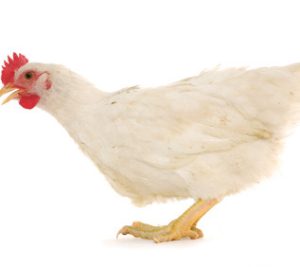
Arginine: Assessing the use of higher inclusion levels in broiler diets
Arginine is an essential amino acid for poultry. The inclusion of arginine at levels that are superior to those recommended, has been shown to positively influence growth performance in broilers. Arginine is a versatile amino acid which has proteinogenic, functional and trophic functions within the animal’s body.
Due to its multifunctionality, Arginine can influence metabolism, growth, immunity, and overall health status in several ways.
It has also been shown to induce the expression and secretion of anabolic hormones, such as insulin, growth hormone (GH), and insulin-like growth factor-1 (IGF-1).Over the past two decades, there has also been a growing interest in the effects of this amino acid on
the gastrointestinal tract.
- accelerating mucosal regeneration and recovery from gastroenteric disorders
- improving epithelial integrity and barrier function
- immunomodulation
- anti-inflammatory activity
- inhibition of enteric pathogens
- restoration of beneficial microbiota
In regards to animal nutrition, arginine is commonly considered a semi-essential or conditionally essential amino acid for adult mammals. Meanwhile chickens rely on dietary arginine to meet their requirements.
This is related to the fact that mammals are ureotelic (i.e., urea-excretion) animals which can endogenously produce de novo arginine through the action of urea cycle enzymes. On the contrary, bird species are uricotelic (i.e., uric acid excretion) organisms unable to complete the urea cycle.
Arginine Levels: Research
A study was designed to evaluate the effects of arginine supplementation (i.e., total arginine to total lysine ratio of 1.20 instead of the 1.06–1.08 ratio recommended by breeding companies) on broiler growth performance. Assessing its impact on:
hepatic function,blood metabolic profiles, as well as on the intestinal microbiota.
To achieve this purpose, a diet supplemented with L-arginine was administered for 49 d.
Results
![]() Compared to control birds, those receiving the arginine supplement performed significantly better and exhibited: a higher final body weight at D49 (3778g vs. 3937 g; P < 0.001), higher growth rate (76.15g versus 79.46 g of body weight gained daily; P < 0.001), and a lower cumulative feed conversion rate (1,808 vs. 1,732; P < 0.05).
Compared to control birds, those receiving the arginine supplement performed significantly better and exhibited: a higher final body weight at D49 (3778g vs. 3937 g; P < 0.001), higher growth rate (76.15g versus 79.46 g of body weight gained daily; P < 0.001), and a lower cumulative feed conversion rate (1,808 vs. 1,732; P < 0.05).
![]()
Plasma concentrations of arginine, betaine, histidine, and creatine were higher in the supplemented birds than in their control counterparts, as were creatine, leucine, and other essential amino acids in the liver.
![]()
In contrast, leucine concentration in the cecal content was lower for the supplemented birds.
Reduced alpha diversity and relative abundance of Firmicutes and Proteobacteria (specifically Escherichia coli), as well as a higher abundance of Bacteroidetes and Lactobacillus salivarius were found in the cecal content of supplemented birds.
Conclusions
The improvements observed regarding growth yield corroborate the advantages of arginine supplementation in broiler nutrition.

It can be hypothesized that the performance improvement found in this study is associated with increased availability of arginine, betaine, histidine and creatinine in plasma and liver. As well as due to the the capacity of additional dietary arginine to potentially improve gut conditions and benefit the microbiota of supplemented birds.
However, the latter, among with other research questions that arose from this study, still require further research to be clearly elucidated.
